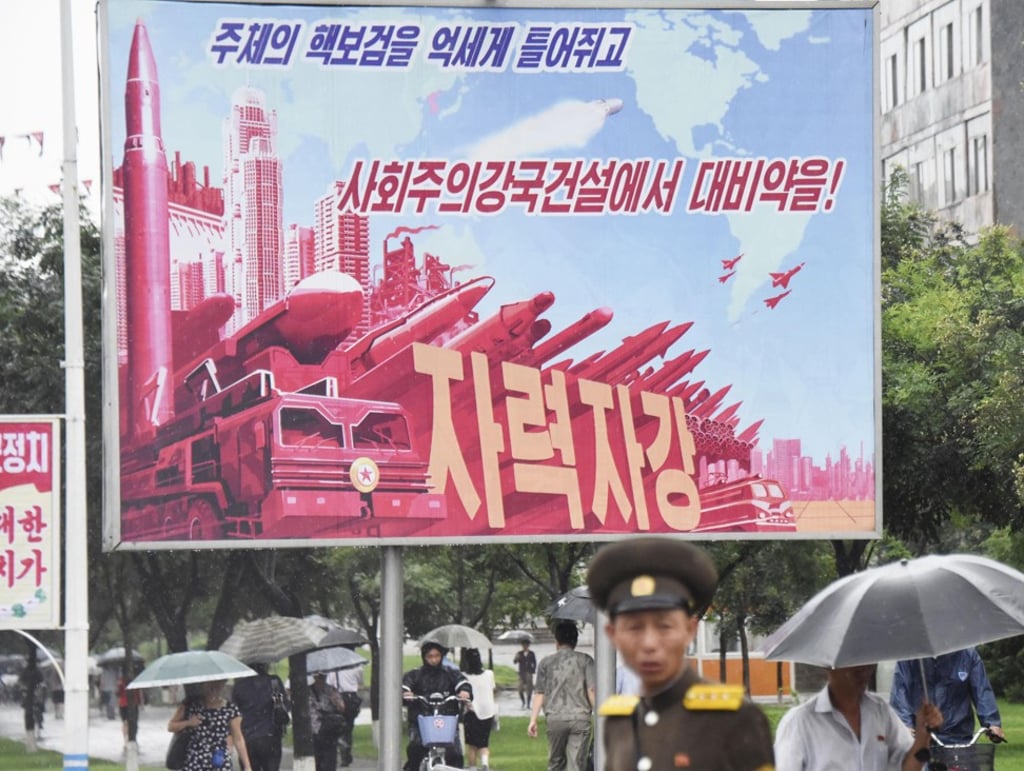Chinese universities ‘limiting admission of North Korean students’ as nuclear crisis escalates
Chinese colleges rejecting North Korean students’ applications, with increase in security measures since Pyongyang’s latest military test, according to college recruitment officials

Some Chinese universities are restricting the admission of North Korean students and even blacklisting their scholarship applications as the nuclear weapons crisis escalates on the Korean peninsula, according to several college enrolment officers.
One recruitment official at a university in Beijing said his college was cutting back on North Korean student numbers, especially those majoring in physics or material science.
All the officials said they were following government instructions, but they did not make clear at what level the orders were made.
Surveillance has also been stepped up on North Korean students studying at Chinese universities since Pyongyang carried out its sixth nuclear test earlier this month, according to an official at a college in Beijing.
“For those already on campus, we can’t send them back home, but each of them is closely watched and followed by security personnel, or through technical methods, to prevent them from obtaining sensitive materials,” he said.
The official said several new North Korean students had arrived and started taking classes last month.
